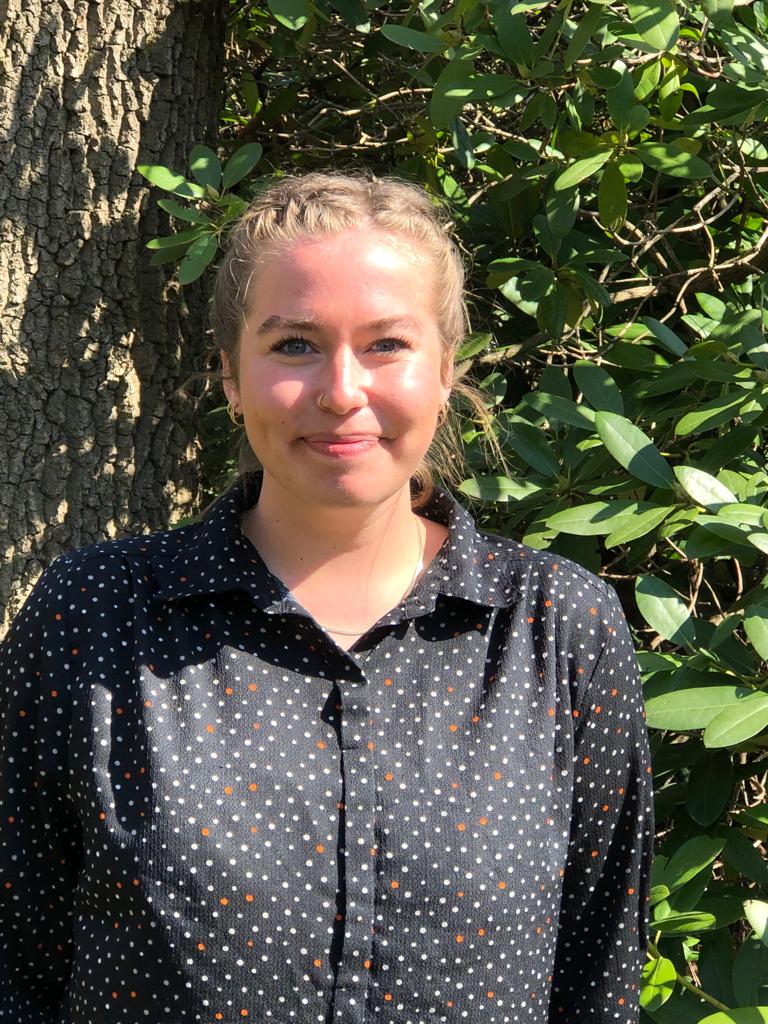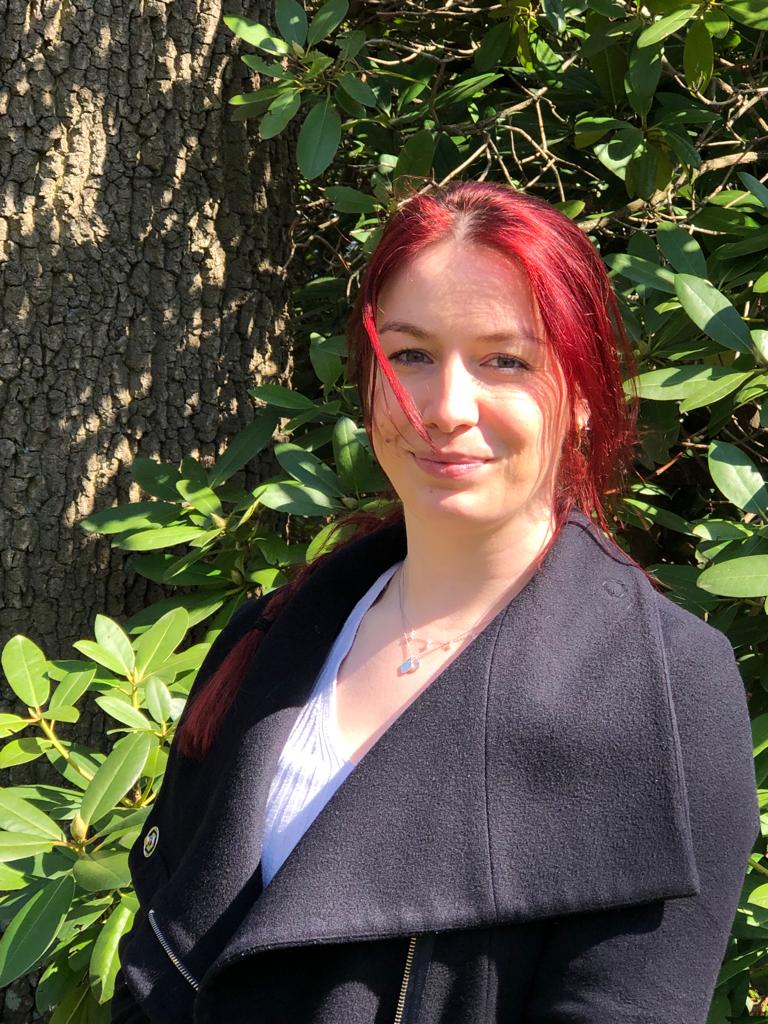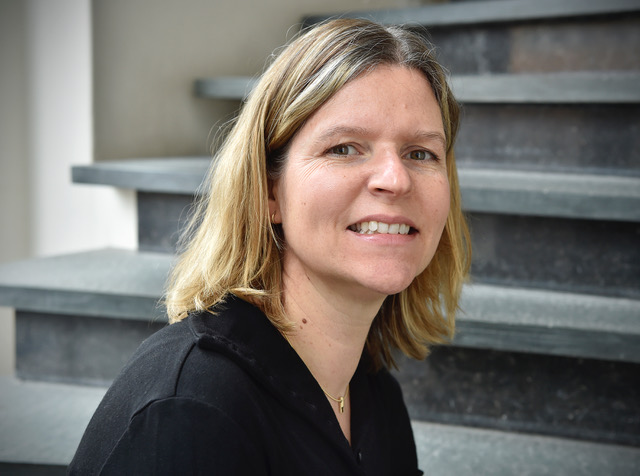Introduction of the Early Stage Researchers

ESR1
- tpetzke@uni-mainz.de

ESR2
- franziska.regnath@tum.de

ESR3
- saya.niwa@umed.wroc.pl

ESR4
- linamu@rm.dk

ESR5
- a.smakowski@uke.de

ESR6
- m.tattan@umcg.nl

ESR7
- asma.chaabuni@radboudumc.nl

ESR8
- carolina.rometsch@unifi.it

ESR9
- a.kustra-mulder@uke.de

ESR10
- chloe.saunders@clin.au.dk

ESR11

ESR12
- n.mamo@dimence.nl

ESR13
- Brodie.McGhieFraser@radboudumc.nl

ESR14
- h.treufeldt@sheffield.ac.uk

ESR15
- c.mcloughlin@ed.ac.uk
My name is Caoimhe McLoughlin. My placement on the ETUDE program is in the University of Edinburgh, where I am working under the supervision of Professors Jon Stone and Alan Carson. Our project will focus on studying the patient experience in Functional Neurological Disorder (FND). We as a team hope to learn more about how and when stigma occurs for patients with FND and later in the project aim to develop pilot interventions that address it
Introduction of the primary supervisors

- j.g.m.rosmalen@umcg.nl

- joanna.rymaszewska@umw.edu.pl
Prof. dr. Joanna Rymaszewska is a professor of psychiatry, head of the Department of Clinical Neuroscience of the Wroclaw University of Science and Technology and chief of the Clinic of Psychiatry in the University Hospital in Wroclaw, Poland. She is a member of the European Association of Psychosomatic Medicine (EAPM) board, as well as vice-president of the Polish Psychiatric Association. With over 20 years of clinical experience and over 320 scientific papers, as well as several books published, she combines hands-on clinical work with research. Her scientific interests include dementia research as well as the use of innovative techniques in psychiatry (transcranial magnetic stimulation, deep brain stimulation, cryotherapy) and C-L psychiatry. Since the start of her career, she has taken part in several international grants and projects, including two projects in dementia care and research: SHARED (Social Health And REserve in the Dementia patient journey) and COGNISANCE (COdesiGning demeNtia dIagnoSis ANd post-diagnostic CarE). For ETUDE, Joanna Rymaszewska was appointed as Training Coordinator.

- k.fila-witecka@umw.edu.pl
Karolina Fila-Witecka is a psychologist and a PhD student as well as member of the staff at the Department of Clinical Neuroscience of Wrocław University of Science and Technology. Her research interests include neurostimulation methods in psychiatry (transcranial magnetic stimulation and deep brain stimulation). Her current projects also revolve around the impact of the COVID-19 pandemic on psychopathological symptoms and lifestyle changes among the Polish population. Her clinical work includes the outpatient as well as the inpatient clinics of the Wrocław University Hospital, where she works as a psychologist and a CBT psychotherapist.

- fiammetta.cosci@unifi.it

- Tim.OldeHartman@radboudumc.nl

- b.loewe@uke.de

- a.toussaint@uke.de
Dr. Anne Toussaint is a psychologist and senior researcher at the Department of Psychosomatic Medicine and Psychotherapy of the University Medical Center Hamburg-Eppendorf, Germany. Her research focuses on the diagnosis and management of persistent somatic symptoms. She conducted several studies on the assessment of somatic symptom and related disorders, is a primary investigator in the research unit SOMACROSS, and a member of the EURONET-SOMA network.

- a.weigel@uke.de

- l.tak@dimence.nl

- a.carson@ed.ac.uk

Prof. dr. Jon Stone
- Jon.Stone@ed.ac.uk

- charrask@rm.dk

- lisbeth.frostholm@aarhus.rm.dk

- chris.burton@sheffield.ac.uk

- Nadine.Lehnen@mri.tum.de
Prof. dr. Nadine Lehnen is a senior physician at the Department for Psychosomatic Medicine and Psychotherapy at the Technical University Munich (TUM), Germany, where she is head of inpatient treatment with focus on severe functional disorders. Lehnen is trained in psychosomatic medicine, psychotherapy, neurology and neuroscience. Her main interest is the understanding, diagnosis and treatment of physical complaints in the context of somatic and mental illnesses – but especially those complaints for which neither a plausible physical nor psychological cause can be found. She uses computational-experimental research approaches and translates them to individual patient care. Besides ETUDE, she is a member of EURONET-SOMA, the EAPM, the German Society for Psychosomatic Medicine and Psychotherapy (DGPM), faculty member of TUM medical faculty and of the Graduate School of Systemic Neurosciences, Munich, and founding partner of EyeSeeTec GmbH.

- witthoef@uni-mainz.de

